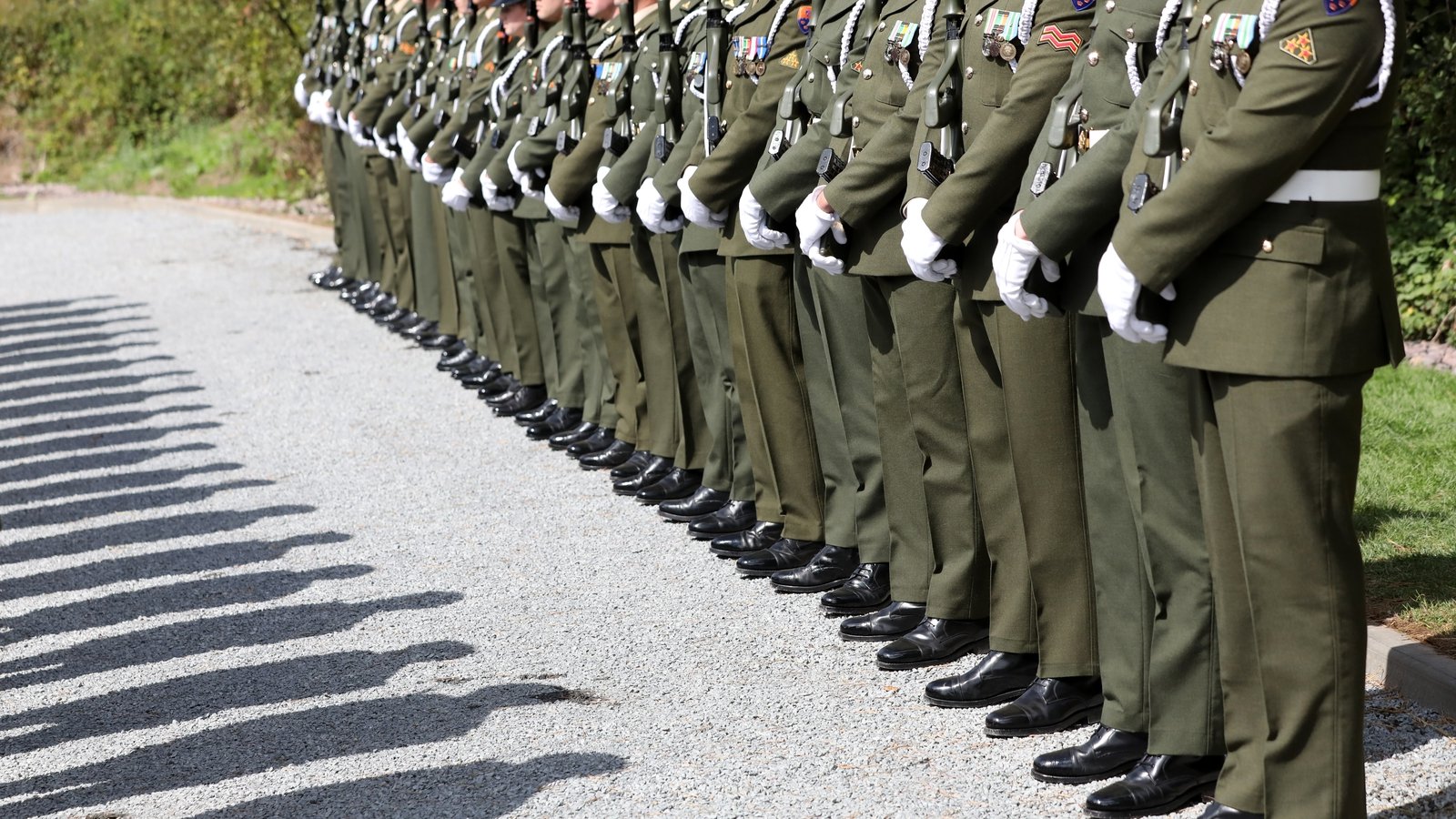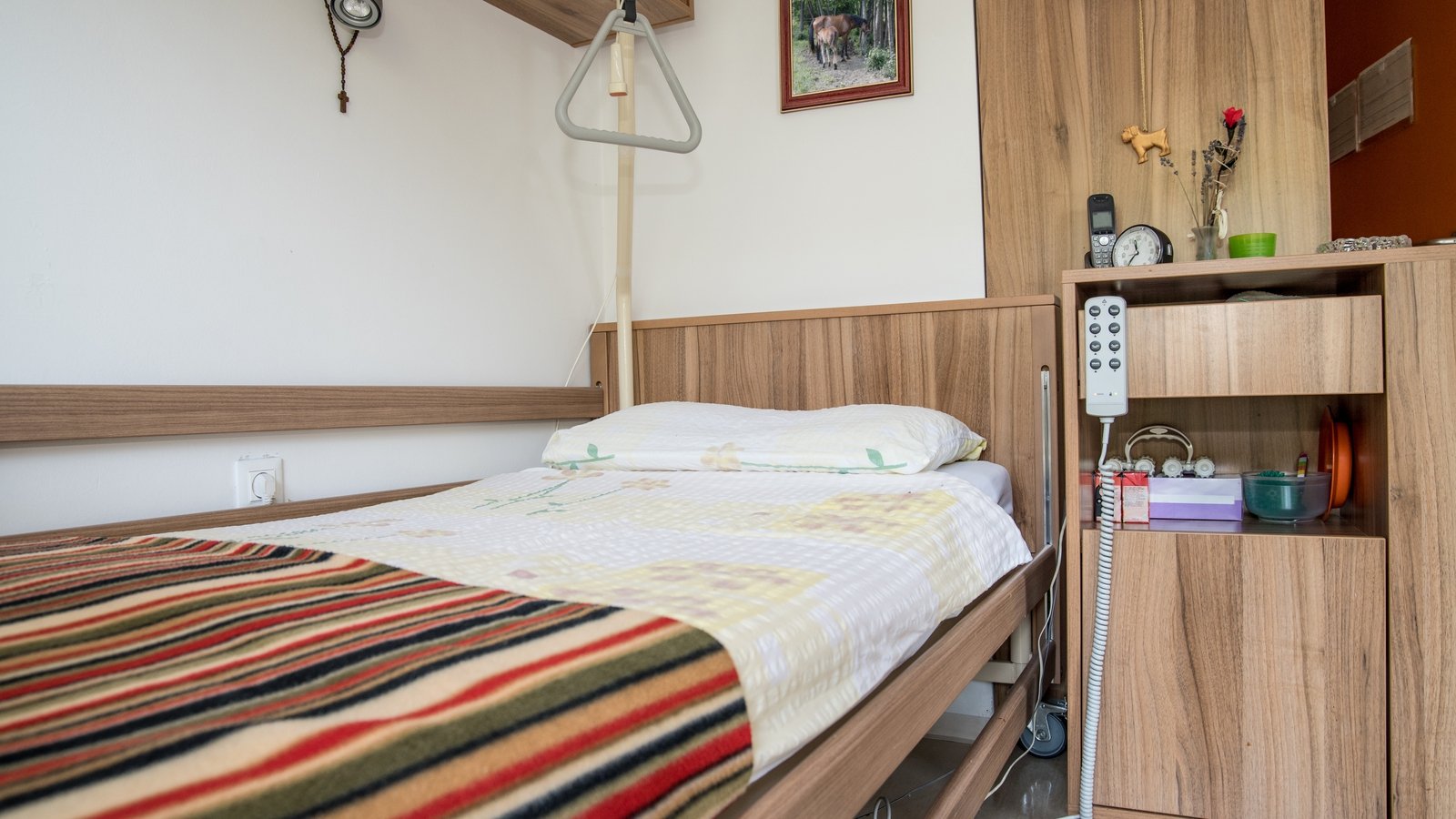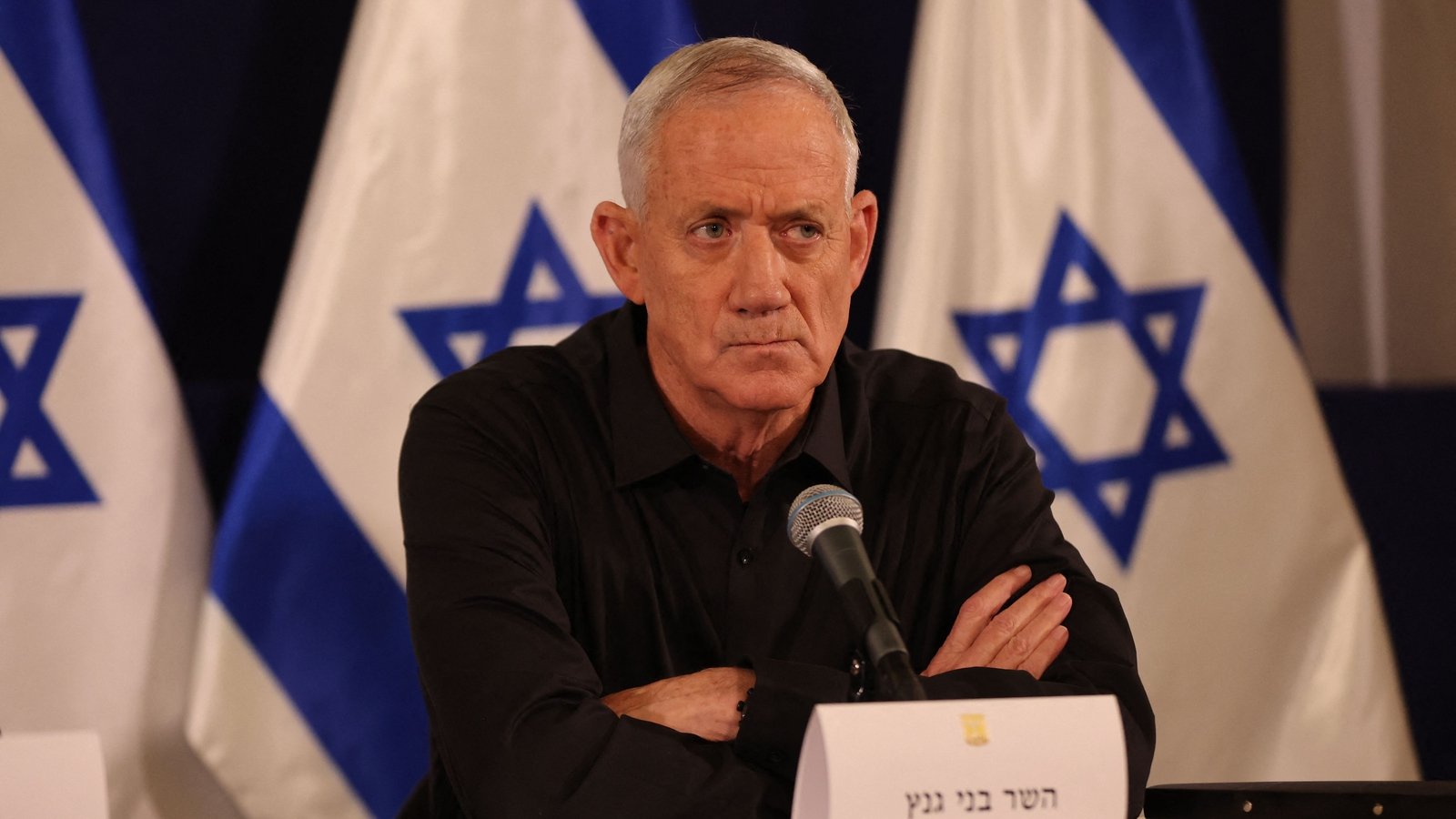Taiwan prepares for ‘peace and war’ elections
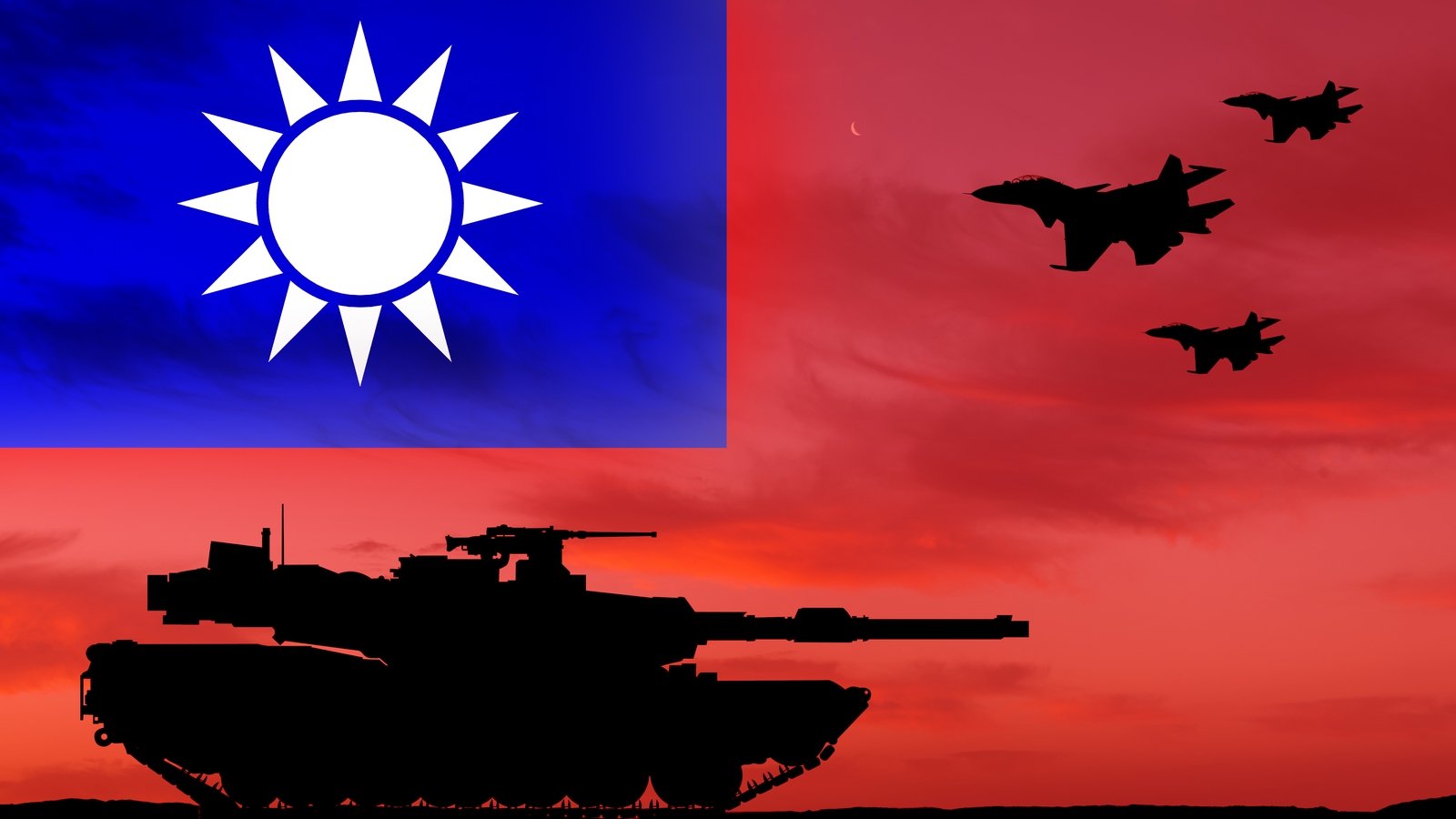
The frontrunner in today’s presidential election in Taiwan is Lai Ching-te, whose Democratic Progressive Party (DPP) rejects the Chinese claim that Taiwan is its territory.
The party is set on maintaining its parliamentary majority and securing an unprecedented third consecutive, four-year presidential term. After two terms in office, President Tsai Ing-wen is constitutionally barred from standing again.
Lai’s campaign has been swamped by disinformation, from deep-fakes to TikTok videos, prompting the candidate to accuse China of using “all means to interfere with this election”.
“Taiwan stands on the front line of the confrontation between democracy and totalitarianism,” he told a campaign rally on Tuesday.
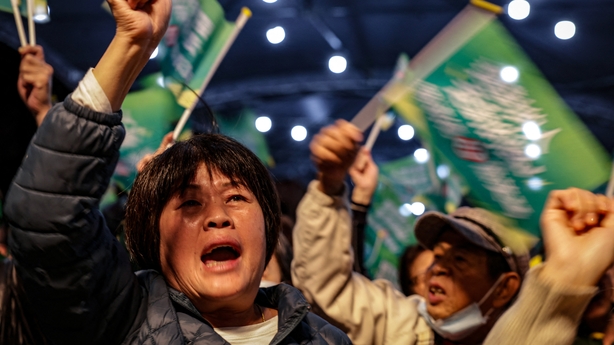
The main opposition party, Kuomintang (KMT), has condemned the DPP as separatists.
Its candidate Hou Yu-ih strongly opposes any move towards independence.
While the heated issue of Taiwanese identity, and the country’s relationship with China, has long played a defining role in how people vote, that may be changing, with fewer voters holding any allegiance to the communist giant. For many of them, especially the young, the matter is as settled as it’s likely to be in the near term.
However, voters will be mindful of the declaration from an increasingly assertive China that this election is a choice between “peace and war”, meaning the KMT and DPP.
A quick look at the candidates
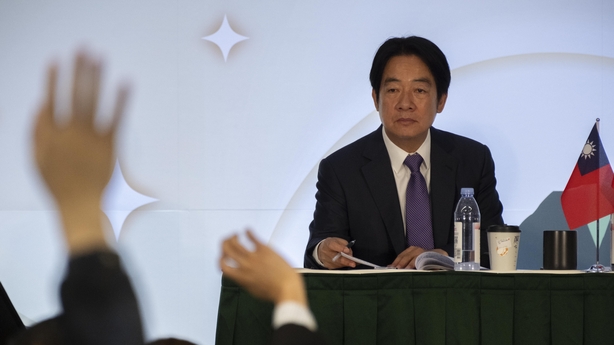
Voters are faced with a choice of three men in their 60s.
Lai Ching-te, also called William, is 64. He is Taiwan’s vice president and chairman of the DPP.
The son of a coal miner, his previous declaration that he was a “worker for Taiwan independence” provoked consternation in Beijing.
However, he has promised to maintain the status quo with the island’s powerful neighbour across the Taiwan Strait.
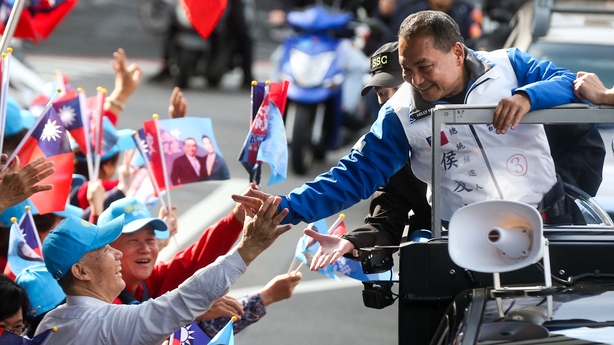
Hou Yu-ih, 66, was re-elected mayor of Taipei’s neighbouring city, New Taipei, in a landslide in 2022.
A former chief of police, he says that only the island’s people can decide their future.
While his party, KMT, rejects China’s “one country, two systems” model of autonomy, it is far closer to Beijing’s thinking than the DPP.
Ko Wen-Je, a former Taipei mayor, is the candidate for the small Taiwan People’s Party, which he founded in 2019, and is considered a rank outsider.
The party goes into these elections holding only five out of 113 seats in the legislature.
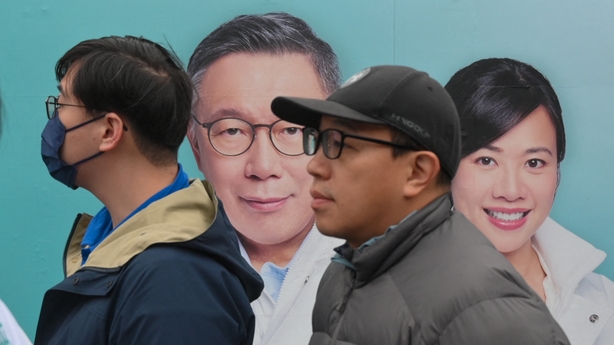
However, by focusing on bread and butter issues like the soaring cost of housing, the 64-year-old surgeon has won a passionate and loyal base of young supporters.
Public housing is in very short supply in Taiwan relative to other developed economies, according to the Organization for Economic Cooperation and Development (OECD).
Echoing concerns of their peers in Ireland, young Taiwanese are demanding government action to improve access to accommodation, and to restore the rapidly receding prospect of home ownership.
Average wages in Taiwan are also significantly lower than other high-growth economies in the region, such as Korea, Hong Kong and Singapore.
Ongoing military pressure and no compromise
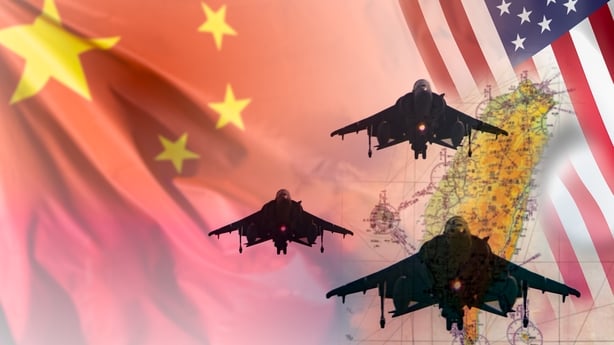
Any understanding of Taiwan must take into account its crucial place in the struggle between the US and China for dominance in Asia.
This week, the two superpowers resumed military talks which had been put on ice after a controversial visit by the then-speaker of the House of Representatives Nancy Pelosi to Taiwan in August 2022.
Pelosi’s trip garnered headlines across the world and provoked fury in Beijing, with some observers wondering if it was US President Joe Biden’s way of signalling a more hardline approach – ‘hands off Taiwan’ – to its nemesis.
This appears not to have been the case. In November, Biden and Chinese president Xi Jinping met in Washington to eek out some limited common ground, and clear the way for military talks.
This week, China made clear its direction of travel, firmly restating that it will “never compromise” on its territorial claim to Taiwan, which it called on the US to stop arming, a demand Washington is sure to ignore.
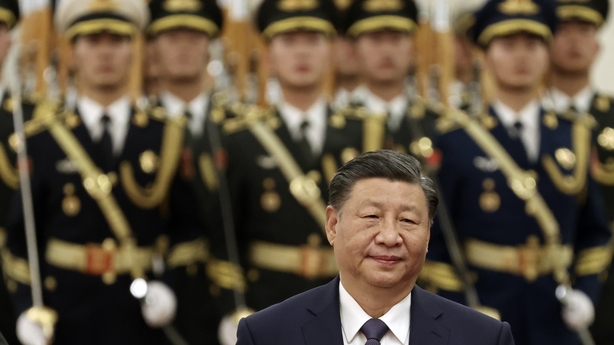
Since late December, Xi has twice stressed the importance of “reunification” with Taiwan in public comments.
As a democracy, and one of the few Asian nations to introduce marriage equality, Taiwan is increasingly culturally estranged from its totalitarian neighbour.
But the island’s significance for Beijing goes far beyond a simple territorial claim. Taipei is a semiconductor powerhouse and home to the world’s largest manufacturer of cutting-edge microchips, upon which the global economy and many nations’ vast militaries rely.
China is ramping up pressure on Taiwan’s 23.5 million citizens, having staged two rounds of major war games, which saw it firing missiles into Taiwan’s waters, in the past year and a half.
The US maintains a substantial naval presence in the region, with bases to the south in Australia, and in Japan to the north.
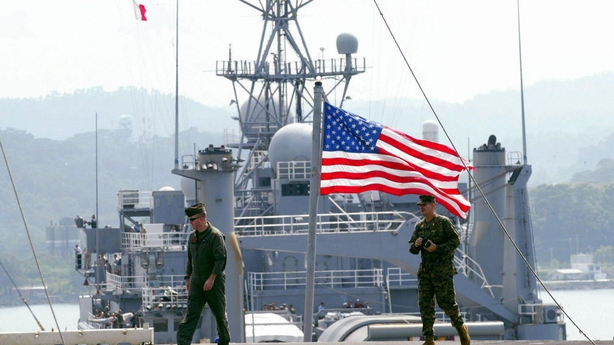
Analysts note ongoing efforts by the communist superpower to sway public opinion in Taiwan away from pro-independence views ahead of today’s vote.
“(China-led) information campaigns are sustained, systematic and produce huge volumes of misinformation. Anything to discredit the legitimacy of Taiwan’s democracy,” Jonathan Sullivan of the University of Nottingham, said.
“Taiwan faces an extremely well-resourced and motivated rival for ‘hearts and minds’.”
Beijing has, unsurprisingly, dismissed the allegations as “rumours and hype”.
‘Everyone agrees that China is a threat’
China has its work cut out if it wants to win Taiwan by persuasion. In 1992, around one in four Taiwanese identified as Chinese.
Today, that stands closer to one in 50, according to polling from Taiwan’s National Chengchi University for the past three years.
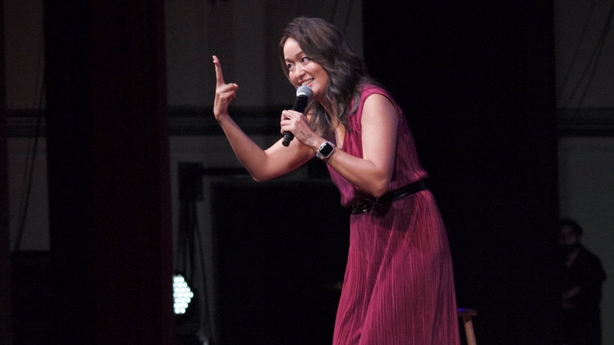
“This is Taiwan. We are so used to having elections, so used to having politics in our daily lives,” says Comedian Kylie Wang, whose podcast has about 400,000 listeners.
Her comedy has shifted over the years – mirroring Taiwan’s increasingly independent stance – to making more targeted barbs at the Chinese Communist Party.
“I got so many private messages from Chinese audiences, saying how much they appreciate our show,” Wang says. “Everyone agrees that China is a threat. It’s not funny anymore.”

